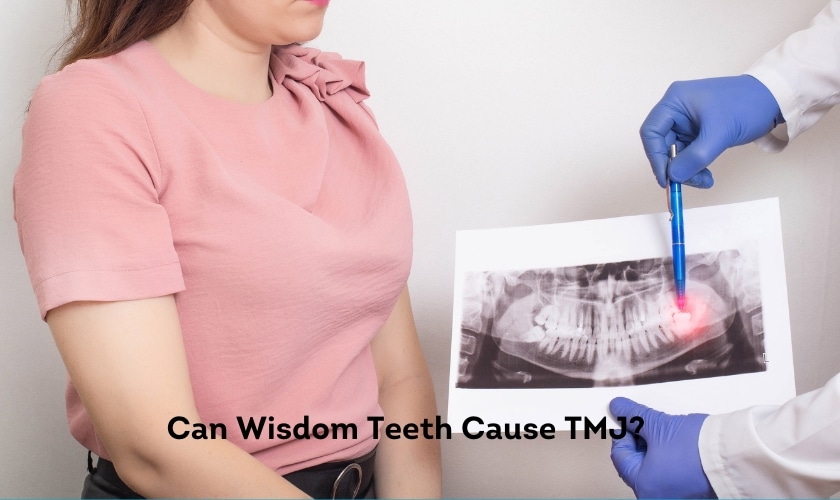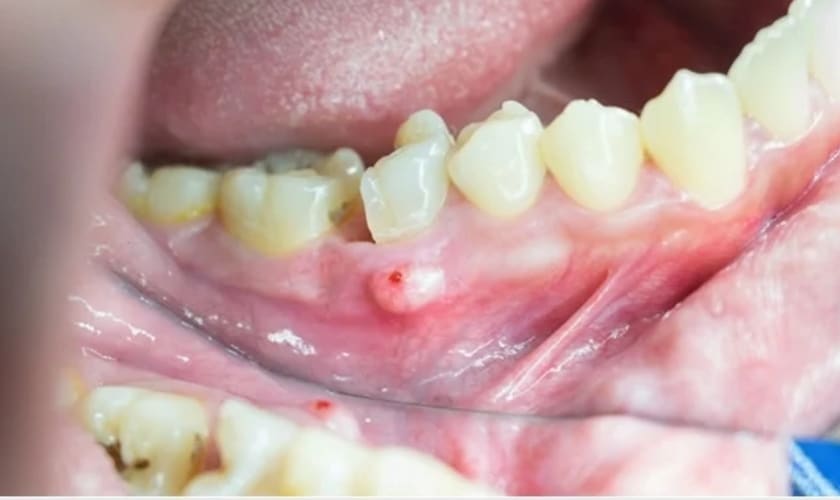
Are you experiencing jaw pain or discomfort? If so, it could be due to your wisdom teeth. These third molars can sometimes cause severe dental problems, including TMJ (temporomandibular joint disorder). In this blog post, we will delve into how wisdom teeth cause TMJ, exploring symptoms and treatment options. So grab a seat and let’s dive deep into the world of dental health! Whether you’re in Pharr or beyond, Arcade Dental is here to help address all your oral concerns. Let’s find out if those pesky wisdom teeth are the culprit behind your TMJ issues.
TMJ and its Causes
The disorder known as temporomandibular joint disorder, or TMJ, affects the muscles surrounding the jaw joint. The temporomandibular joint, which joins your jawbone to your skull, functions as a hinge. TMJ can develop from this joint becoming out of alignment or from being overly stressed.
TMJ Causes:
There’s no single villain in the TMJ story, but a band of mischievous factors play their part:
- Stress: Clenching your teeth like a bulldog with a bone? That tension translates to undue pressure on the TMJ, paving the way for pain.
- Trauma: A nasty blow to the jaw or whiplash from an accident can misalign the joint, throwing its harmony into disarray.
- Bad Habits: Chewing on ice with the enthusiasm of a polar bear isn’t just noisy; it can strain the TMJ too. Poor posture and grinding teeth join the party, further aggravating the joint.
- Arthritis: When arthritis creeps into the TMJ, it can stiffen and inflame the joint, leading to pain and limited movement.
- Hormonal Imbalances: Hormones like estrogen can influence muscle tension, and changes in their levels, like during pregnancy or menopause, can contribute to TMJ symptoms.
- Genetics: Some people are born with a predisposition to TMJ, likely due to factors like jawbone structure or muscle strength.
What are Wisdom Teeth?
The final set of teeth to erupt in the mouth are the wisdom teeth, commonly referred to as third molars. They typically appear in the range of 17 to 25 years old. Four wisdom teeth, one in each corner of the mouth, are present in most people. However, it’s not uncommon for some individuals to have fewer or even none at all.
These teeth got their name because they appear later in life when a person is supposedly wiser. But let’s be honest, wisdom doesn’t necessarily come with these new additions to our dental repertoire!
Why do wisdom teeth cause problems?
Wisdom teeth can often cause problems due to a lack of space in the jaw. When there isn’t enough room for them to properly emerge and align with the rest of your teeth, they become impacted. This means that they remain trapped beneath the gum line or partially emerge and create an opening where bacteria can accumulate.
Impacted wisdom teeth can lead to several issues, such as pain, infection, swelling of the gums, damage to nearby structures like other teeth or nerves, and even cysts or tumors forming around them.
What are the symptoms of wisdom tooth problems?
The symptoms of wisdom tooth problems can vary depending on the severity of the impaction. However, some common symptoms include:
- Pain in the jaw or around the wisdom teeth
- Swelling of the gums or face
- Difficulty opening or closing the mouth
- Bad breath
- Tenderness or bleeding of the gums
How are wisdom tooth problems treated?
If you are experiencing any of the symptoms of wisdom tooth problems, it is important to see a dentist right away. They will be able to assess the situation and recommend the best course of action. In most cases, impacted wisdom teeth will need to be extracted.
The Connection between Wisdom Teeth and TMJ
Our jaws may not have enough space to accommodate these additional molars properly. As a result, the wisdom teeth can become impacted, meaning they get trapped beneath the gum tissue or bone or grow at odd angles.
Wisdom Teeth Causing TMJ:
When wisdom teeth don’t fully erupt or grow in misaligned positions, they can put pressure on surrounding structures like nerves and jaw joints. This added stress on the temporomandibular joint (TMJ) can lead to inflammation and dysfunction. The symptoms of TMJ caused by wisdom teeth can vary but commonly include:
- Inflammation
- Dysfunction
- Jaw pain
- Facial swelling
- Difficulty opening or closing the mouth properly
- Clicking or popping sounds when moving the jaw
- Headaches
Symptoms:
Wisdom teeth, those latecomers to the dental party, can sometimes throw a wrench in the smooth operation of your jaw. When these third molars erupt without enough space or grow at awkward angles, they can wreak havoc on your temporomandibular joint (TMJ), causing a symphony of discomfort. But how do you know if your jaw woes are being orchestrated by these pesky teeth? Here are some key symptoms to watch out for:
1. Jaw Pain, the Persistent Guest: This is the star of the show: a constant or recurring ache around your jaw joints or radiating up to your temples. It’s like having an unwelcome tenant in your jaw, refusing to leave.
2. The Gatekeeper of Gape: Opening your mouth wide becomes a chore, and even closing it can feel like a struggle. Think of it as your jaw becoming a rusty hinge, creaking and groaning with every movement.
3. The Click-Clack Chorus: Every yawn and every bite is accompanied by an unsettling click-clacking or grinding sound. It’s like your jaw joint has turned into a percussion instrument, playing an unwelcome tune of discomfort.
4. Headaches and Earaches, the Unwanted Duo: The pain doesn’t stop at your jaw. TMJ issues can trigger frequent headaches, and the pressure can even radiate to your ears, leaving you feeling like you’re in the middle of a sonic boom.
5. Facial Puffiness, the Unflattering Guest: In some cases, the inflammation caused by impacted wisdom teeth can lead to swelling around your jaw and face, making you feel like you woke up after a particularly salty night out.
Remember, these symptoms shouldn’t be ignored. They can worsen over time, turning your jaw into a constant source of discomfort. If you suspect your wisdom teeth might be the culprits, don’t hesitate to consult a dentist specializing in TMJ disorders. They’ll be your conductor, diagnosing the situation and composing the perfect treatment plan to get your jaw back in harmony.
Treatment Options:
When addressing TMJ linked to wisdom teeth, treatment options vary based on symptom severity and individual circumstances. Consider the following common recommendations:
1. Medications:
- Over-the-counter pain relievers like NSAIDs alleviate discomfort and reduce inflammation.
- Prescription medications, such as muscle relaxants or tricyclic antidepressants, may be prescribed for severe cases.
2. Oral Appliances:
- Dentists or oral surgeons may suggest splints or mouthguards to realign the jaw joint and relieve muscle pressure.
3. Physical Therapy:
- Therapeutic exercises enhance jaw mobility, strengthen muscles, and support healing for those with TMJ from wisdom teeth.
4. Dental Procedures:
- Surgical extraction of impacted wisdom teeth might be necessary to address the root cause of TMJ symptoms.
5. Lifestyle Modifications:
- Adopting lifestyle changes, like avoiding hard foods and practicing stress reduction techniques, contributes to TMJ management.
- Heat packs or cold compresses, along with maintaining good posture, aid in pain relief.
Remember, individual cases differ, emphasizing the importance of consulting a dental professional for an accurate diagnosis. A personalized treatment plan tailored to your unique needs ensures effective management of TMJ caused by wisdom teeth.
Individual responses to TMJ management vary, highlighting the importance of consulting a qualified dentist specializing in TMD/TMJ disorders for personalized care. At Arcade Dental Pharr, our dedicated team understands the impact of TMJ symptoms and is committed to providing comprehensive dental care, ensuring an accurate diagnosis and tailored treatment plan. Don’t let persistent jaw pain affect your quality of life; schedule an appointment with us at Arcade Dental Pharr to take the first step towards relief from TMJ caused by wisdom teeth.
FAQs
No, not all wisdom teeth cause TMJ. The risk is higher with impacted teeth or those causing crowding and misalignment.
Wisdom teeth removal can improve TMJ symptoms if they’re contributing to the problem. However, it’s not a guaranteed cure, and other factors may need to be addressed.
Common TMJ symptoms include jaw pain, clicking or popping sounds, difficulty opening your mouth, headaches, and facial pain.
A dentist will conduct a physical examination and may order X-rays or other imaging tests to diagnose TMJ.
Treatment options for TMJ vary depending on the severity and cause. They may include medications, physical therapy, bite adjustments, and, in some cases, surgery.




